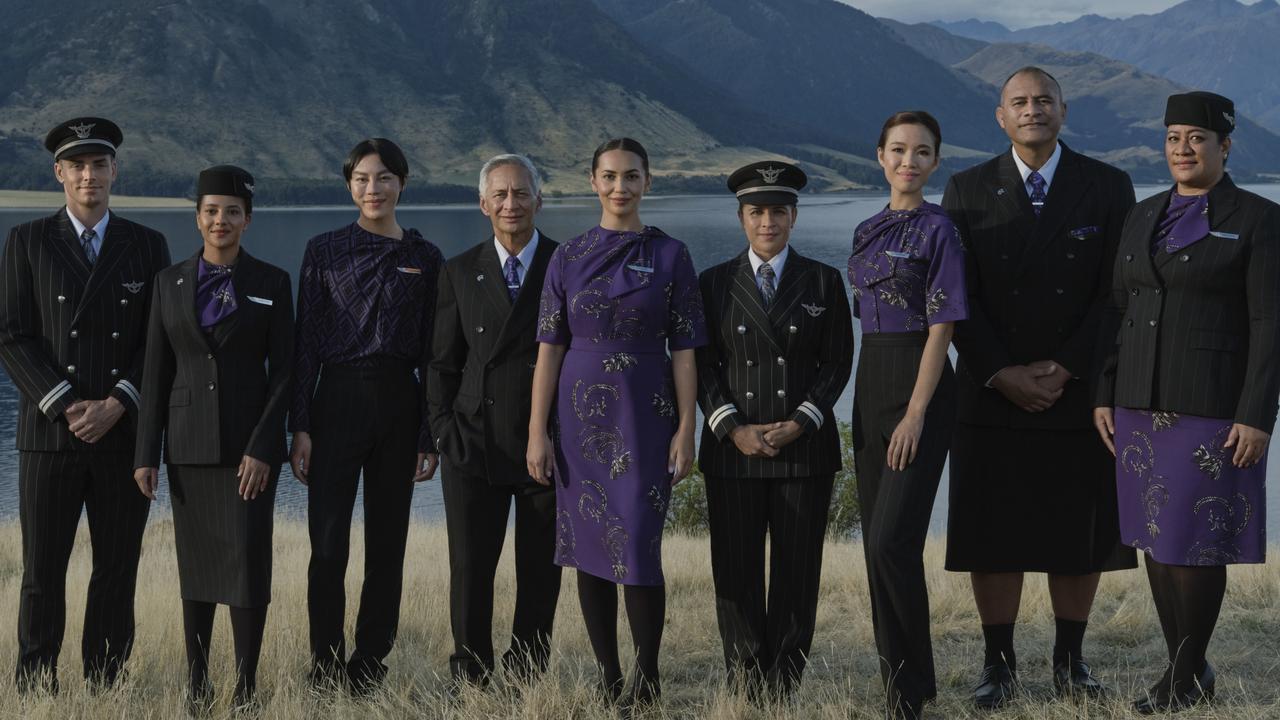What Australians pay to sit on the world’s popular beaches as Cabana-gate row continues
National debate over the use of cabanas to secure an all-day spot at the beach could be signalling a future where free access to Australia’s beaches is a thing of the past. Vote in our poll.
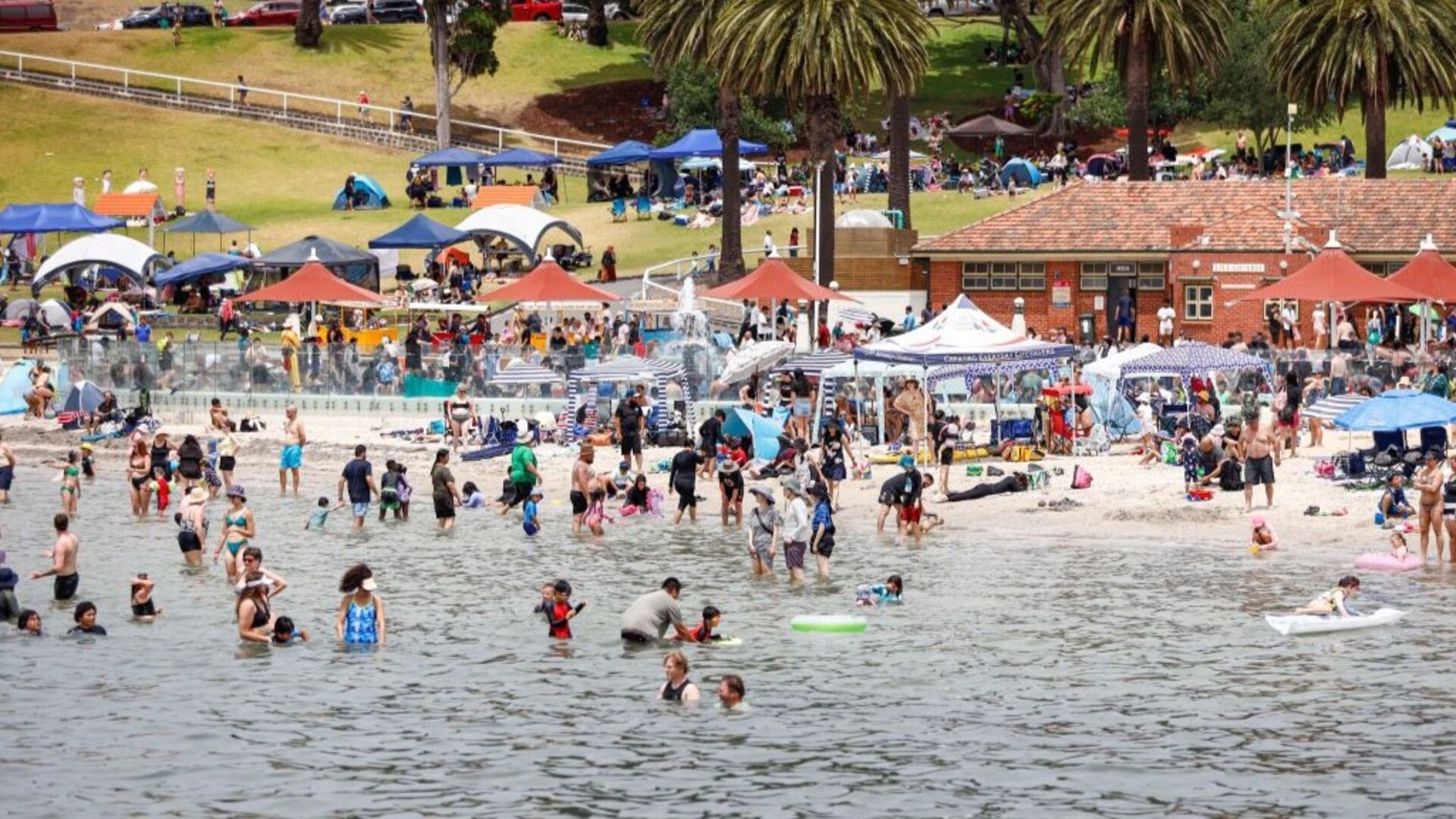
Travel
Don't miss out on the headlines from Travel. Followed categories will be added to My News.
Australia could be heading down the path of paid beach access similar to models already in use at popular beaches in Europe and Asia.
The controversial and growing practice of erecting a shade structure – or cabana – on the sand in the early morning to secure an all-day spot at the beach has erupted into a national debate.
While many have bought the pricey blue and white striped CoolCabana spotted across Aussie beaches, Mitre 10 has also seen a +147 per cent increase in sales of its $79 dupe beach cabana just recently on January 4 when the mercury hit 38C in Melbourne alone in comparison to the previous year.
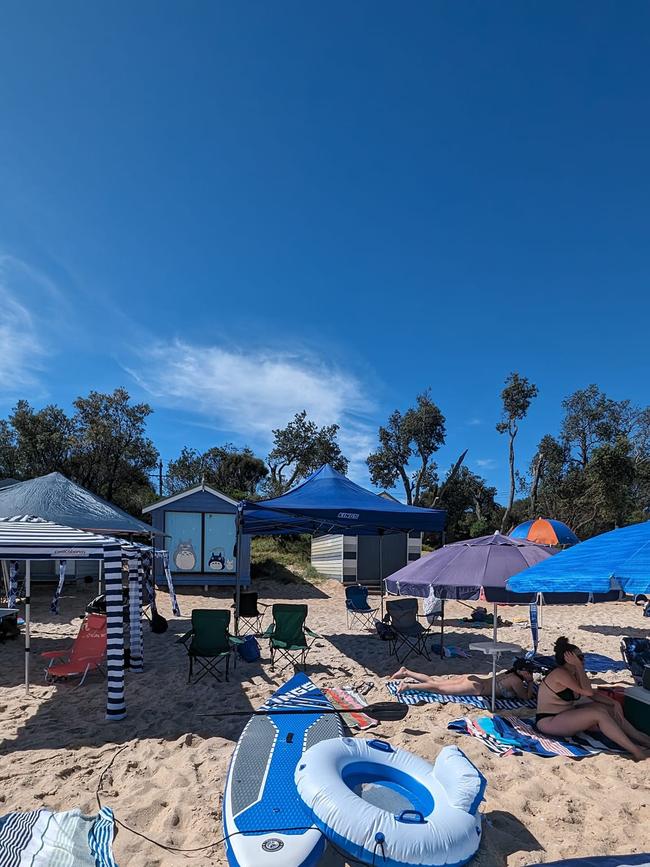
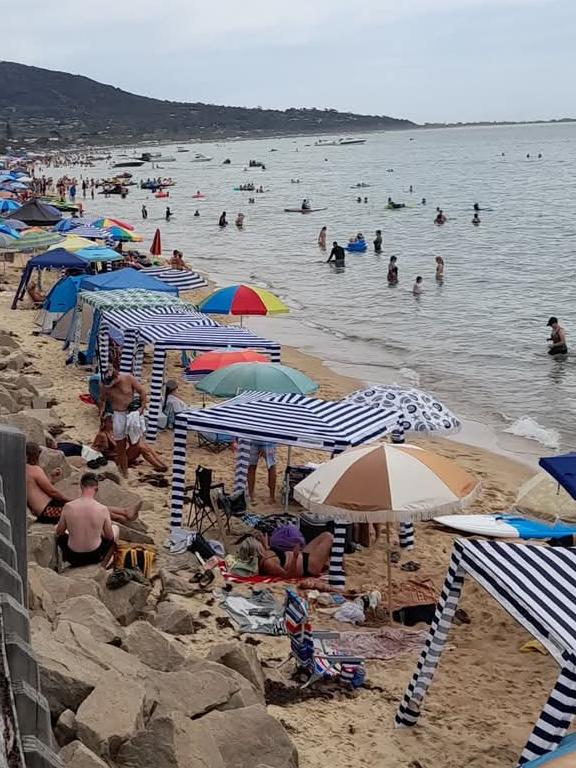
Even Prime Minister Anthony Albanese weighed in this week when he was asked on national TV what he thought of the practice.
“It’s not on”, the PM responded, adding that it went against our values as a nation.
But along the French Riviera and Amalfi Coast of Italy and across to Greece, many of the beaches are no longer public, meaning beachgoers have to pay to stay.
At Le Galet in Nice, France, a sun chair will set you back A$38 (A$42 if you want front row by the water), while an umbrella is an extra A$10. Add another A$10 if you don’t have a towel.
And the fees are the same for children over the age of 2.
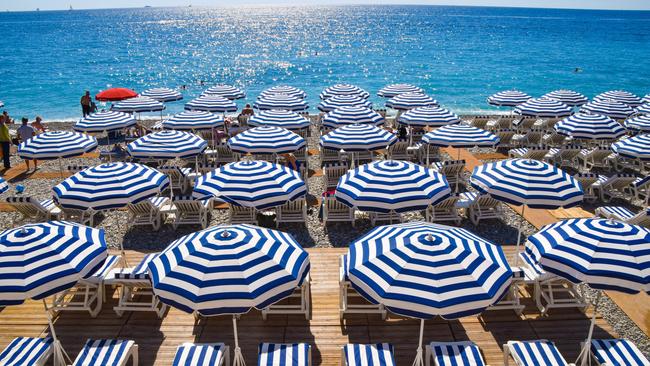
At most places along the Riviera it’s not possible to reserve a spot so it’s first come, first serve.
Some restaurants require you to dine in their beach restaurant, while others allow you to bring your water bottle or sandwich.
The furore that erupted this week is firmly aimed at families setting up cabanas in the early morning to secure a prime position and returning later in the day.
Other families also leave the beach, presumably to lunch or shop, and return again later having kept their prime sandy spot.
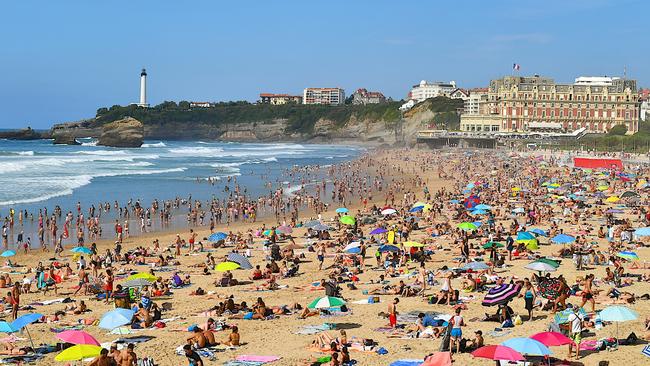
But Mr Albanese was staunchly against the idea of implementing a similar model to that in Europe.
“One of the great things about Australia, unlike some parts of the world (where) you go and you’ve got to pay to go to the beach. Here, everyone owns the beach,” Mr Albanese said.
“It’s a place where every Australian is equal. And that’s a breach of that principle, really, to think that you can reserve a little spot as just yours.”
The Italian coastline boasts more than 12,000 beach resorts where two sun lounges and an umbrella can set you back a steep A$60.
Spending a day beachside at Positano normally costs between A$100 and A$400 – and that’s just the furniture hire – but for the true VIP experience, you can reserve a spot at La Scogliera for anywhere between A$400 and A$1100 for the day.
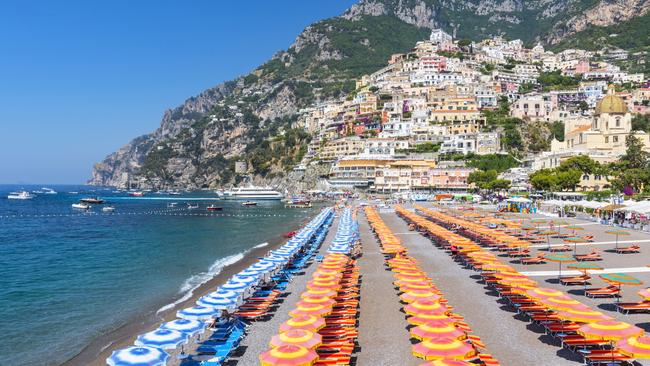
But in some parts of Italy there is growing discontent among locals who are fed up with paying.
The Free Sea (Mare Libero) group has been protesting at beaches since 2019 in an effort to reclaim the space and make Italy’s beaches free to access or at least allocated to beach operators through a transparent bidding process.
Italy’s controversial beach concession renewal system has allowed state-owned licences to be handed down through families of beach operators who set up members-only beach clubs or charge for sun loungers and umbrellas.
The system is illegal, according to EU law, which says new operators should be able to compete with established beach concession holders.
This year, the government will introduce a public tender process for beach concessions, which cover almost half of the country’s estimated 7,900km of coastline.
And, in a move to protect the delicate ecosystem of Sardinia, tourists have been banned from stepping foot on the famous Spiaggia Rosa beach or face fines of up to A$5800.
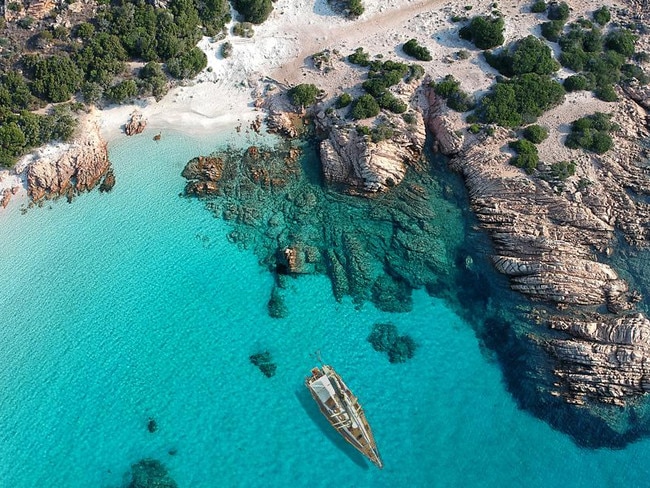
In Greece, the government has introduced strict regulations to address overcrowding and ensure fairness when it comes to enjoying the country’s stunning beaches.
The new “beach bill” has banned sunbeds altogether from ecologically sensitive areas while other beaches must now be between 70 and 85 per cent sunbed-free.
Beach-side businesses will compete for space through online auctions while drones will be used to monitor compliance.
Overcrowding has been made worse with restaurants and hotels vying for space and taking over large sections of the shoreline, leaving little room for the public.
To curb the problem, there must now be a minimum distance of four metres between the shoreline and the sunbeds. Generally, sunbeds can be rented but come at a price.
According to the Greek City Times, renting a sunbed and umbrella package at Alimos Beach, on Athens’ southern coast, has been A$36 on weekends, with an extra A$16 per person entrance fee. A family of four were paying just over A$100 for a spot on the beach.
At Anavyssos Beach (southeast of Athens) a sunbed & umbrella pack was nearly A$10 on weekdays, A$33 euros on weekends.
At Porto Rafti Beach (East Attica), a sunbed & umbrella pack was A$16 euros on weekdays, nearly A$25 on weekends and up to A$11 per person entrance fee for example with some front-row sunbeds possibly costing even more.
Fees for beaches around the island of Corfu can cost from A$10 per person to over A$30.
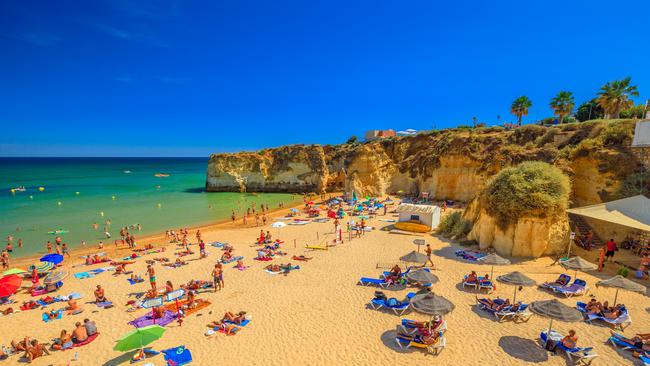
Additionally, Greece introduced a new climate sustainability fee for overnight visitors in 2024. The tariff addresses the impact of extreme weather events, like fires and floods, on the country’s infrastructure and was expected to generate A$500m last year.
Tourists visiting Greece from March to October have also been slugged with an overnight tax, based on the type of accommodation, ranging from A$1.50 to A$7 a night.
Other EU countries have followed suit by introducing restrictions around beach access.
In the Spanish resort of Benidorm, tourists can face fines of up to A$1994 for swimming between midnight and 7am and sleeping on the beach during these hours also brings fines.
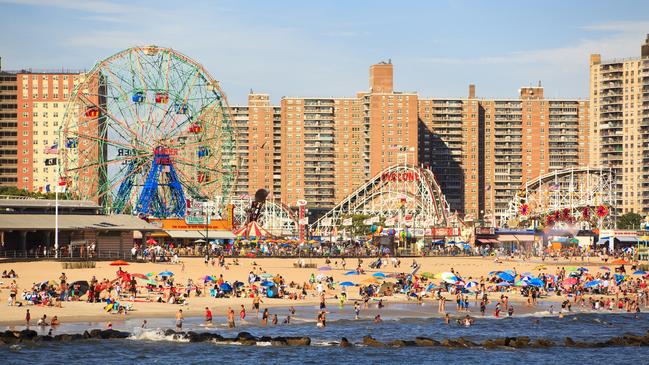
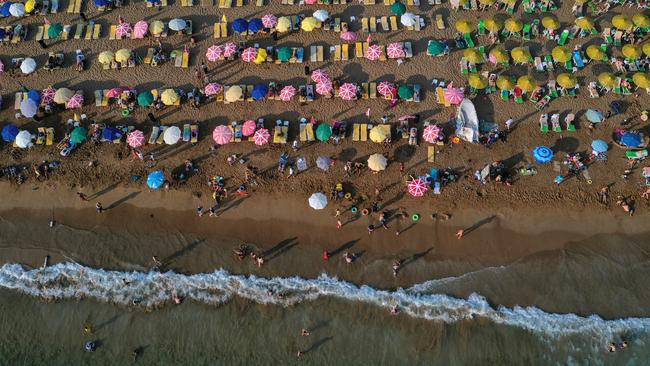
Portugal is also cracking down on beach behaviour, with fines of up to A$60,000 for using portable speakers on the beach.
For those still paying for a seat, sunbeds are priced at just A$41 at Luuma Beach in Marbella in Spain and include a towel, bottle of water, and smoothie shot.
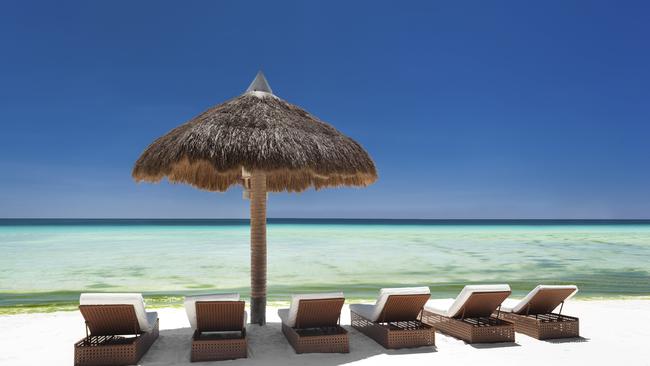
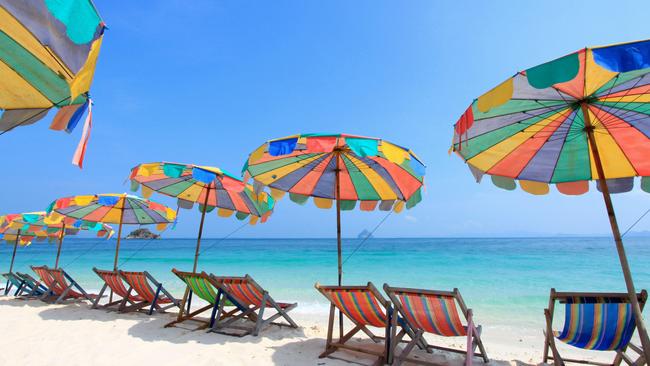
In Bali, tourists would pay around IDR 750,000 per bed at some beach clubs for example which is A$74 a day for cabanas located in a shaded area that can accommodate up to 2-3 people.
Sun loungers or single sunbeds are available with a minimum spend of IDR 150,000 per bed A$14.80 and are first-come, first-served.
In Vietnam they would be 35,000 VND or A$2.21 a day. In Thailand on beaches in Phuket, you can get two sunbeds with an umbrellla for 200 bahts A$9.30.
More Coverage
Originally published as What Australians pay to sit on the world’s popular beaches as Cabana-gate row continues




